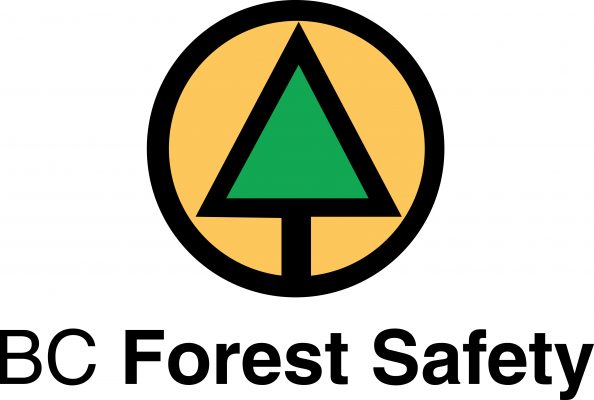 The stress of the economic downturn in B.C.’s forest industry is being felt not only by the hundreds of mill workers who have been laid off or had a reduction in shifts, but also by forestry workers and contractors, such as log truck drivers and independent timber harvesters, who rely on the mills to produce product.
The stress of the economic downturn in B.C.’s forest industry is being felt not only by the hundreds of mill workers who have been laid off or had a reduction in shifts, but also by forestry workers and contractors, such as log truck drivers and independent timber harvesters, who rely on the mills to produce product.
Managing stress effectively reduces the negative symptoms and allows us to pay attention to the critical safety aspects of our jobs.
Losing a job or not having work is one of life’s most stressful experiences and is not something to take lightly. It can be an overwhelming, life-changing event that impacts not only the individual, but their families and communities alike. It also has the potential for us to lose focus on tasks at work increasing the potential for incidents to occur.
It’s normal to feel angry, hurt, or depressed, grieve for all that you’ve lost, or feel anxious about what the future holds. Job loss and unemployment involves a lot of change all at once, which can rock your sense of purpose and self-esteem. While the stress can seem overwhelming, there are many things you can do to take control of the situation, maintain your spirits, and come out of this difficult period stronger, more resilient and with a renewed sense of purpose.
Why is job loss so stressful?
Our jobs are much more than just the way we make a living. They influence our personal perception and how we are perceived by others. They give us structure and purpose which is why job loss and unemployment can be so stressful.
Beyond the loss of income, losing a job also comes with other major losses, some of which may be even more difficult to face:
- Professional identity
- Self-esteem and self-confidence
- Daily routine
- Purposeful activity
- A work-based social network
- Sense of security
Grief is a natural response to loss. You need to give yourself time to adjust and try to accept your feelings by going easy on yourself. No matter how devastating it may seem though, with time and the right coping techniques, you can come to terms with these setbacks, ease your stress and anxiety and move on with your career.
Coping Techniques
The following coping tips can help you deal with both the grieving process and the stress of your job loss in a healthy way.
Stay Strong by Cultivating a Resilient Mindset
- Resist the temptation to withdraw. Find a support system and stay engaged.
- Set goals and set a schedule for achieving them.
- Be a realistic optimist and let go of any unrealistic expectations of yourself and others.
- Give yourself permission to feel and process your feelings.
- Don’t expect to be happy all the time and take responsibility for your decisions and feelings.
- Develop a caring relationship with yourself and others and practice gratitude and mindfulness.
Reach Out and Stay Connected
- Find a good listener to talk to about how you are feeling.
- Continue to foster your social connections by taking a class, joining a sports team or get involved with your community by volunteering or attending local events.
- Develop a network for new employment opportunities and set up meetings with networking contacts.
- Create a job search plan, learn a new skill.
Involve Your Family for Support
- Open up and lean on your family for support.
- Keep your family in the loop on your job search.
- Listen to their concerns and worries and give them a chance to make suggestions.
- Make time for family fun.
- Keep an open dialogue with your kids and help them feel involved.
Face Your Feelings to Help You Deal with the Loss and Move On
- Accept reality by acknowledging the difficulty and accepting the situation you are in so you can move onto the next phase in your life.
- Avoid beating yourself up and challenge negative thoughts to maintain your self-confidence.
- Look for a silver lining by finding a lesson in your loss and learning from the experience. Take time to reflect on what you want and rethink your career priorities.
- Write it all down. Express your feelings, make a note of your ideas, document your experience, make a list of your positives or detail your goals, writing can help you to look realistically at your new situation and put things into perspective.
Take Care of Yourself and Maintain a Healthy Balance in Your Life
- Get moving to relieve stress by exercising.
- Eat healthy to keep you focussed.
- Get plenty of sleep and practice relaxation techniques.
- Focus on what you can control to help you stay positive and stay on task.
- Keep a daily routine.
Losing your job or not having work is a setback, to be sure, and it’s hard not to take things personally. But in order to keep your self-esteem intact, try to think about the situation as objectively as possible. It’s important to experience whatever emotions arise and you don’t want to ignore them. You can, however, manage them and make sure they don’t get the best of you during the process. Coping with job loss is difficult, but you never know what’s around the corner. If you feel you need assistance in dealing with stress and have access to an Employee and Family Assistance Program (EFAP) don’t hesitate to use it.
Additional Resources
- Help Guide: Job Loss and Unemployment – https://www.helpguide.org/articles/stress/job-loss-and-unemployment-stress.htm,
- Map showing mental health support and crisis phone numbers for BC – www.crisislines.bc.ca/mapcrisis-lines
- Mental Health and Substance Use Resources from HealthLinkBC – www.healthlinkbc.ca/mental-health-substance-use
- Stress Management Resources from HealthLinkBC – www.healthlinkbc.ca/health-topics/rlxsk
- Managing Stress in the Workplace – http://www.bcforestsafe.org/node/3354
 BC Forest Safety Council
BC Forest Safety Council420 Albert Street
Nanaimo BC V9R 2V7 Tel: 250-741-1060
Fax: 250-741-1068
Toll Free: 877-741-1060 www.bcforestsafe.org/safety_info.html